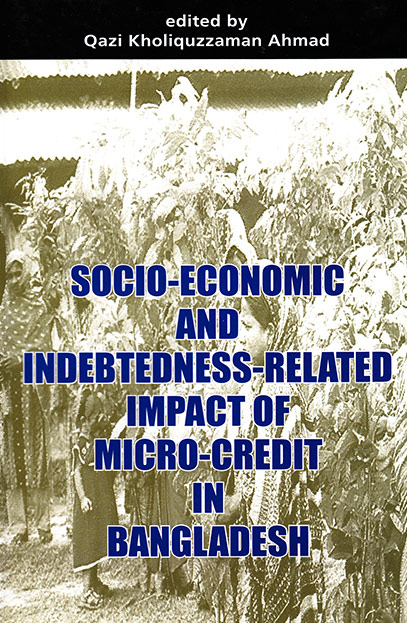
- Shop
- Socio-Economic and Indebtedness-Related Impact of Micro-Credit in Bangladesh
Socio-Economic and Indebtedness-Related Impact of Micro-Credit in Bangladesh
https://uplbooks.com/shop/9789840517787-socio-economic-and-indebtedness-related-impact-of-micro-credit-in-bangladesh-6658 https://uplbooks.com/web/image/product.template/6658/image_1920?unique=90f5a49
| Language: English |
Tags :
Book Info
Some of the micro-borrowers in Bangladesh have benefited in certain respects. A lot of them are struggling under the stringent terms of credit including the high cost of borrowing and a weekly repayment schedule starting a week after a credit is taken. Many have gone further into indebtedness and face a bleak future. The micro-borrowers face the threat of expulsion and confiscation of their assets when they fail to pay up weekly installments, and some have in fact had their meagre assets confiscated when they failed to pay up. This threat is in effect collateral. Very little empowerment has been achieved by the women micro-borrowers. Often, they are simply the conduit for some money coming into the family. Only about 10% of the female respondents have indicated that they are in full control of and manage the economic activities undertaken with micro-credit. A large majority of the micro-credit households have remained condemned to a lowly and subservient state of living. The main culprits for this state of affairs include the glaring and accentuating socio-economic disparity and worsening iniquitous power relations in the country, neither of which is addressed or even recognised by the micro-credit institutions (MCIS). These are some of the major findings thrown up by this study which is based on a countrywide rurally representative sample survey conducted during January - February 2006.

Qazi Kholiquzzaman Ahmed
Qazi Kholiquzzaman Ahmad is the President of the Bangladesh Economic Association (BEA) and Chairman of the multidisciplinary research organization Bangladesh Unnayan Parishad (BUP). He has been President of the Kuala Lumpur-based Association of Development Research and Training Institutes of Asia and the Pacific, ADIPA (1979-83) and Vice President of the Rome-based Society for International Development, SID (1988-91). His publications include 26 books and over 300 articles and research reports on various aspects of development. He holds an M.A. (Economics) from Dhaka University and Ph.D (Economics) from the London School of Economics and Political Science (LSE), London University. He participated in the Bangladesh War of Liberation in 1971.


